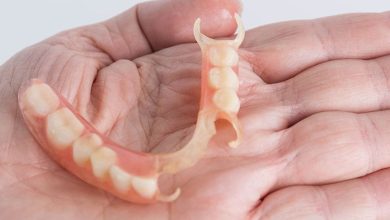

Persistent problems with s*xual response, desire, orgasm or pain that distress you or strain your relationship with your partner — are known medically as s*xual dysfunction.
Many women experience problems with s*xual function at some point, and some have difficulties throughout their lives. Female s*xual dysfunction can occur at any stage of life. It can occur only in certain s*xual situations or in all s*xual situations.
Table of Contents
Symptoms
- Low s*xual desire: This most common of female s*xual dysfunctions involves a lack of s*xual interest and willingness to be s*xual.
- Sexual arousal disorder: Your desire for s*x might be intact, but you have difficulty with arousal or are unable to become aroused or maintain arousal during s*xual activity.
- Orgasmic disorder: You have persistent or recurrent difficulty in achieving orgasm after sufficient s*xual arousal and ongoing stimulation.
- Sexual pain disorder: You have pain associated with s*xual stimulation or vaginal contact.
When to see a doctor
If s*xual problems affect your relationship or worry you, make an appointment with your doctor for evaluation.
Causes
Sexual problems often develop when your hormones are in flux, such as after having a baby or during menopause. Major illness, such as cancer, diabetes, or heart and blood vessel (cardiovascular) disease, can also contribute to s*xual dysfunction.
Factors that contribute to s*xual dissatisfaction include:
Physical:
Any number of medical conditions, including cancer, kidney failure, multiple sclerosis, heart disease and bladder problems, can lead to s*xual dysfunction. Certain medications, including some antidepressants, blood pressure medications can decrease your s*xual desire and your body’s ability to experience orgasm.
Hormonal:
Lower estrogen levels after menopause may lead to changes in your genital tissues and s*xual responsiveness. Sexual desire also decreases when hormonal levels decrease.
Your body’s hormone levels also shift after giving birth and during breast-feeding, which can lead to vaginal dryness and can affect your desire to have s*x.
Psychological and social:
Untreated anxiety or depression can cause or contribute to s*xual dysfunction. The worries of pregnancy and demands of being a new mother may have similar effects.
Long-standing conflicts with your partner — about s*x or other aspects of your relationship — can diminish your s*xual responsiveness as well. Cultural and religious issues and problems with body image also can contribute.
Risk factors
- Depression or anxiety
- A history of s*xual abuse.
- Certain medications, such as antidepressants or high blood pressure medications
- Heart and blood vessel disease
- Certain medications, such as antidepressants or high blood pressure medications
- Emotional or psychological stress, especially with regard to your relationship with your partner
For any important information please contact us Email GadgetsNg info@gadgetsng.com
[Button id="1"]



